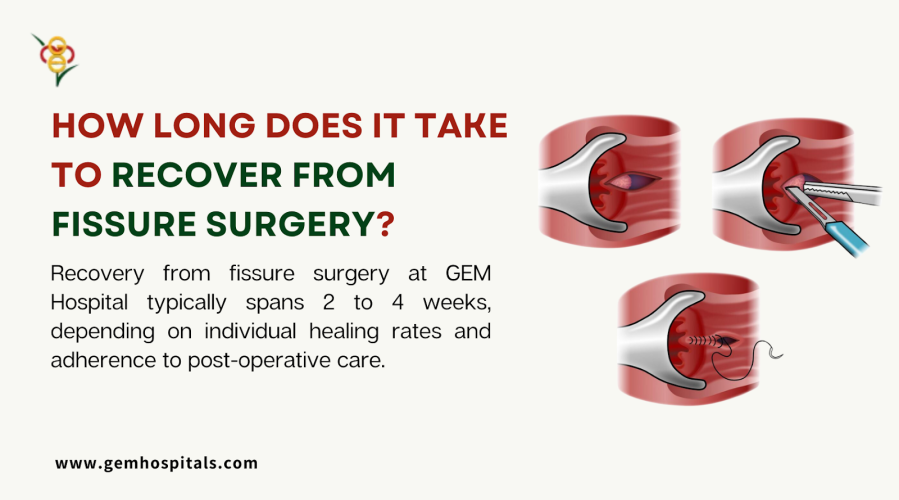Learn effective solutions for digestive problems with expert tips to improve gut health, reduce discomfort, and maintain a healthy digestive system.
How Long Does It Take to Recover from Fissure Surgery

How Long Does It Take to Recover from Fissure Surgery
Recovering from fissure surgery is a significant concern for many patients. Understanding the recovery timeline and the steps you can take to enhance your healing process are crucial. This article provides you with an easy-to-follow guide on what to expect post-surgery, along with practical tips to aid your recovery.
Understanding Fissure Surgery Recovery Time
The recovery period after fissure surgery can vary depending on several factors, including the severity of the condition, the type of surgery performed, and your overall health. Generally, most patients start to feel better within a few weeks, but complete healing might take up to six weeks. It's important to follow your doctor’s advice closely during this period to ensure a smooth and speedy recovery.
Immediate Post-Surgery Care
Immediately after the surgery, it's essential to manage pain and prevent infection. Your doctor will likely prescribe pain relievers and advise on how to care for the surgical site. Keeping the area clean and dry is vital. Avoid any activities that put pressure on the healing tissues, such as sitting for long periods or engaging in strenuous exercise.
Diet and Hydration: Key to Healing
Optimal Nutrition for Recovery
A proper diet is crucial for healing after your surgery. Focus on eating fiber-rich foods, such as fruits, vegetables, and whole grains. These foods help maintain regular bowel movements, which is essential to prevent straining during recovery.
Stay Hydrated
Drinking plenty of fluids, especially water, is another vital aspect of the recovery process. Hydration helps soften stool, which reduces the pain during bowel movements and aids in faster healing.
Activity and Rest: Finding the Balance
While rest is crucial, gentle activities are equally important. Start with light walking around your home, gradually increasing your activity level as recommended by your healthcare provider. Balancing rest and activity helps enhance blood circulation, which is essential for healing.
Long-Term Care Strategies
Once you start to feel better, maintaining the health of your anal region becomes crucial. Continue to follow a high-fiber diet, stay hydrated, and avoid activities that exert excessive pressure on your anal area. Regular follow-ups with your doctor are necessary to monitor your progress and prevent future complications.
When to Contact Your Doctor
If you experience any of the following symptoms, contact your doctor immediately:
- Increased pain, swelling, or bleeding
- Signs of infection, such as fever or unusual discharge
- Difficulty with bowel movements
Schedule an Appointment
If you are experiencing issues related to fissure surgery or if you have concerns about your recovery, schedule an appointment at GEM Hospital. Our dedicated team is here to guide you through your recovery journey, ensuring you receive the best possible care.
By following these guidelines, you can expect to recover from fissure surgery effectively and with minimal discomfort. Remember, each individual's recovery process can vary, and it's important to stay in touch with your healthcare provider throughout your healing journey.
Blogs & Article
Explore current research trends in digestive health, including new treatments, advanced diagnostics, and innovations improving gut health and patient care.
Discover common digestive health myths and the real facts. Learn simple tips to improve gut health and maintain better digestion for a healthier life.


